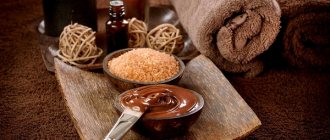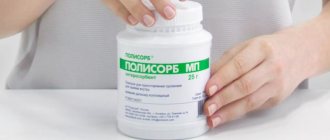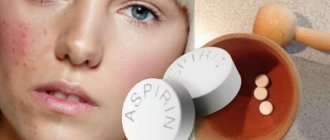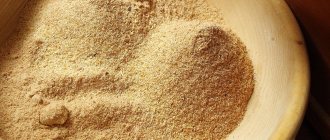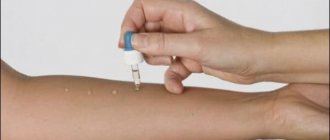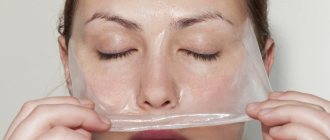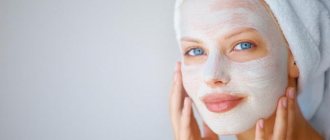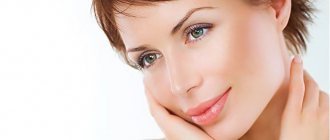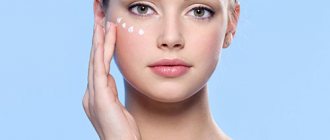Every representative of the fair half of humanity dreams of her skin remaining soft, smooth and elastic for as long as possible. And in order to make this desire come true, women constantly try out all sorts of means on themselves. Some prefer to use exclusively branded cosmetics, others prefer inexpensive creams and masks from little-known manufacturers. And still others use compositions from the arsenal of folk cosmetology, which are often in no way inferior in effectiveness to factory products.
There are also more inventive ladies who can find many ways to use the same product, but for different purposes. Take henna, for example. Everyone knows about it as a natural hair dye, but few people know that this incredibly useful product can also be used in facial skin care. We are, of course, not talking about red or colored henna, but about a colorless powder used to strengthen and heal weakened curls. How does colorless henna act on the skin and what cosmetic problems can it cope with?
Useful properties of the ingredient
Colorless henna is a powder made from finely ground dry stems of the lawsonia plant. Unlike leaf powder, it does not have a coloring effect and is used for medicinal and cosmetic purposes.
The effect of the components of colorless henna on the skin
The composition includes unique biologically active substances, which are not yet possible to obtain artificially . These are the following components:
- fisalen – has a strong calming effect;
- Crizophanol is a strong antiseptic;
- rutin – strengthens the walls of blood vessels;
- emodin – has anti-inflammatory and antimicrobial effects;
- ceaxanthin is a natural and soft abrasive;
- betaine – promotes hydration and nutrition of tissues.
In addition, the plant contains a large amount of vitamins and microelements, which have a prolonged healing effect.
Benefit
Henna is used to prepare cosmetic products for the skin due to its effectiveness. This product evens out your facial tone. That is why its use is recommended for age spots.
It is worth using the product to effectively combat aging skin. Thanks to some components of henna, small wrinkles are smoothed out.
The use of henna is allowed at any age, as it tones the skin. The component has a pronounced anti-inflammatory effect, which makes it possible to use it for acne.
Due to its cleansing properties, henna is used to combat blackheads. Henna provides oxygen access deep into the cells, which is explained by the presence of regenerative properties.
Henna has a huge number of positive properties. With regular use of cosmetic products based on this component, a significant improvement in the condition of the epithelial integument is observed.
Composition and properties
Henna has a unique composition, which ensures its effectiveness in combating a variety of skin problems. The plant consists of:
- Fisalena. It has a calming effect, which allows it to be used for problem skin.
- Chrysophanol. It is characterized by the presence of antimicrobial and antifungal properties, therefore it is used in the presence of pustules on the skin.
- Routine. The action of the component is aimed at strengthening blood vessels. It helps ensure full access of oxygen to skin cells.
- Emodina. Has a regenerating and anti-inflammatory effect.
- Ceaxatina. It helps cleanse the skin of impurities.
- Carotene. The action is aimed at improving complexion.
- Betaine. Provides the highest quality hydration of the skin.
This video will tell you how to use henna for a facelift:
Henna is a plant component, but at the same time it has a rich chemical composition, which makes it possible to use it to improve the condition of the epithelium.
Indications and contraindications
The use of henna-based products should be carried out according to appropriate indications. It is recommended to be used for problem skin, acne, and pustular inflammation.
Women with aging and sagging skin are also recommended to use henna-based products. It most effectively combats excessive fat content of epithelial integuments.
It is recommended to use henna-based masks for dry skin to moisturize it. The products can be used on normal skin to nourish it. Since henna is a herbal product, it is characterized by the absence of contraindications.
The benefits of colorless henna masks for facial skin
A henna facial mask is effective for various defects that may be age-related or hormonal in nature. With regular use of applications, fine wrinkles are smoothed out, while the firmness and elasticity of the skin noticeably increases.
The basis of all masks is the stem of the plant, since the leaves are the strongest dyes
Tonic substances help increase the resistance of the dermis to external negative factors. The amino acids that make up the plant substance stimulate cellular metabolism, which accelerates the regeneration process on aging or tired skin. At the same time, moisture is well retained in the epidermis, and nutrients penetrate into the deepest layers. Hormonal imbalances most often manifest themselves in the form of pimples or acne.
Colorless henna has anti-inflammatory and antibacterial effects, which allows the use of cosmetic masks to eliminate these defects.
Recommendations and advice from cosmetologists
The benefits of henna for facial skin have been appreciated by ordinary housewives, famous artists, and leading cosmetologists. They consider products based on it to be reliable, the most effective, and time-tested.
Expert opinion
CAREFULLY!
Remember that masks should only be applied to thoroughly cleansed, dried skin, otherwise they will be useless! They are kept for no more than 20 minutes and washed off with warm boiled water.
Dry powder should not be added to the mask, that is, you should use a composition obtained by diluting henna with hot water.
It is prohibited to use metal utensils when preparing recipes, as they oxidize and worsen the properties of the product.
Indications for use
The use of lavsonia applications with various additives is recommended both for women with problem skin and for people with healthy faces as a good preventive measure.
Henna in cosmetology is used for the whole body
The main indications for the use of masks may be the following factors:
- dry or oily skin;
- the presence of pimples and blackheads;
- wrinkled and tired dermis;
- unhealthy complexion.
Who is it recommended for?
Natural henna should not contain any foreign chemical components, so carefully study the information on the packaging.
With this natural gift you can quickly get rid of the following skin problems:
- enlarged pores and oily seborrhea;
- blackheads (comedones);
- all kinds of rashes (acne, pimples, boils);
- age spots, freckles;
- premature aging and fading of the skin surface (with loss of elasticity, appearance of wrinkles, changes in facial contours);
- peeling and signs of irritation of the epidermis;
- fungal infections;
- unhealthy color.
Expert opinion
WE RECOMMEND!
After using compositions with henna, the skin of the face becomes clean, smooth, renewed and elastic, and the oval is noticeably tightened.
Recipes for the best homemade masks
Henna in its pure form has a slight drying effect, so its use for different skin types is determined by additional components.
With olive oil
Normalizes the acid-base balance, normalizes the functioning of the sebaceous glands and enriches the dermis with unsaturated fatty acids. Suitable for women with dry skin. The composition includes unrefined olive oil as a component. 10 ml of oil is slightly heated and mixed with 5 grams of henna powder.
Olive oil is one of the few products that does not clog pores.
The mixture is stirred, after which 5 ml of retinol (vitamin A) is added to it. This drug is an antioxidant and has an antibacterial effect. After thorough mixing, the application should be applied to the face for 25-30 minutes. It is best to wash off the mask with a decoction of nettle or chamomile.
With lemon
Makes the vascular network almost invisible, tones the skin, helps get rid of acne and stimulates metabolic processes in the epidermis. Citric acid disinfects the epidermis and prevents inflammation and acne. Citrus fruits contain the largest amount of vitamins and nutrients in the zest, so lemon peel is used for application. Grate fresh lemon peel on a fine grater. Mix 10 grams of this mass with 5 grams of henna powder and 5 ml of jojoba oil. Mix thoroughly until a uniform mass is obtained. If the composition turns out to be too thick, it can be diluted with boiled water. Apply evenly to face using a sponge. After 10 minutes, rinse off the mask with warm water or chamomile infusion.
Banana white henna mask
Well suited for women with age-related changes in the facial dermis. It has a tightening effect and helps get rid of wrinkles. To prepare the application, you need to dilute white lavsonia powder in warm boiled water in a 1:1 ratio. Mix the resulting mixture with two tablespoons of banana puree. Beat the chicken egg in a separate bowl and add to the mixture. Mix everything thoroughly. The mask is applied to the face in a thick layer for 20 minutes. After completing the procedure, rinse the application with warm water.
Banana masks are ideal for dry skin
With clay
An effective mask for cleaning the epidermis. Removes dead cells, relieves local inflammation and gives facial skin a matte shade. An important component is cosmetic clay, which is selected according to the type of dermis. Red clay is suitable for women with dry skin; for oily dermis, a mask of white or green clay is used, and people with problem and combination skin should use blue clay. Mix 10 grams of henna and 5 grams of the selected clay in a glass or ceramic bowl. Add 10 ml peach oil. If the composition turns out to be too thick, it needs to be diluted with sage infusion. Apply the mixture to a clean face for 15 minutes. When rinsing off, it is useful to massage your face with your fingertips.
Clay has unique absorbent properties
With sour cream and vitamin A
Provides nutrition to dry dermis with vitamins and microelements, eliminates peeling, corrects facial contour, refreshes and tones. Mix a tablespoon of colorless henna powder with two teaspoons of sour cream, add the contents of one ampoule of vitamin A (retinol) and mix again. Apply to the dermis of the face with massaging movements and leave for 15 minutes. This application can be done no more than once a week. The total course is 15 sessions.
Henna and medicinal herbs
A universal application that allows you to solve problems with cleansing the epidermis, nutrition and hydration. The mask can be used as a preventative for women with oily and combination dermis. To prepare the composition, take one tablespoon of colorless henna powder. A decoction of chamomile, sage or plantain can be used as an additional component. If herbs are used in the form of dry powder, the mixture is diluted with warm boiled water to the consistency of sour cream. The duration of the procedure is 15-20 minutes.
Purifying masks for blackheads
White clay, tea tree oil, fresh lemon juice, soda, egg whites, honey and herbal remedies help fight excess oily skin and sebaceous plugs.
Oriental scrub with coffee for face and body
You will need 2 tablespoons:
- Oatmeal;
- Coffee;
- White henna powder;
- Heavy homemade cream (depending on the fat content, it may require up to 3-4 tbsp.)
Mix all ingredients until smooth and apply to clean, steamed skin. During the procedure, it is recommended to do a light massage for a better cleansing effect.
Colorless henna + baking soda for oily skin
To prepare the mask you need to add to the basic recipe:
- 0.5 tsp soda;
- A few drops of almond oil.
Expert opinion
Svirid Nadezhda Yurievna
Cosmetologist, 5 years of experience
Helpful advice: to combat oily shine, acne and rashes on the skin of the face, it is better to use warm decoctions of medicinal herbs - chamomile, calendula, thyme, St. John's wort, coltswort, etc. to dilute henna powder.
The exposure time of the mask is approximately 10 minutes.
How to cook properly
Henna powder should only be purchased in pharmacies or specialized stores. You need to pay attention to the expiration date of the product and the presence of a certificate. You cannot purchase henna powder from your hands or in markets. Using such a product for cosmetic masks can lead to negative consequences.
Henna is used to strengthen hair and nails
The dry ingredients are ground in a porcelain mortar to a powdery state. It is best to mix the components of the mixture with a plastic spatula or spoon. The finished product should have the consistency of thick sour cream.
Natural henna can react with various metals, so you can prepare a face mask only in glass, porcelain or ceramic containers.
Rules for applying masks
In order for a natural henna mask to be effective and not have a negative effect on the dermis of the face, you need to follow simple rules:
- Test for an allergic reaction. To do this, apply a small amount of the mixture to thin skin around the wrist. If after 20 minutes there is no redness or burning effect, the mask can be applied to the face.
- Before starting the procedure, the dermis of the face must be thoroughly cleansed of cosmetics, fat and sweat secretions and impurities.
- Before applying the application, it is recommended to steam your face using a hot compress. This will greatly increase the effectiveness of the procedure.
- The duration of applying a mask with henna should not exceed 20 minutes. You shouldn't hold it longer.
- If the composition begins to dry out quickly, the procedure should be stopped and the mask should be washed off a little earlier.
- The cosmetic procedure should be performed about an hour before bedtime.
- If the cosmetic mixture turns out to be too thick, it can be diluted with boiled water or infusion of medicinal herbs.
After removing the application, you can apply grape seed oil or a light cream to your face.
Preparation
When used correctly, henna masks can achieve amazing results. You just need to observe a few points:
- Before applying the mask, remove makeup, cleanse your face, use a scrub, or exfoliate;
- Duration of the session is no more than half an hour;
- Apply the mask 2-3 times a week;
- After the procedure, use face cream;
- The course should last 1-2 months;
- Do not prepare the mask in a metal container.
Editor's choice: Laser biorevitalization: features of the procedure
Contraindications
The ingredient is a herbal product with biologically active components, therefore, when used in facial applications there are a number of contraindications. First of all, this is an individual allergic reaction to the plant and its constituent substances. Therefore, before using the mask it is very important to do a test.
Be sure to check the reaction to all components of the masks separately to exclude the allergen from your care. If redness and itching occur, then you are allergic to this component.
If there are large inflammations, wounds, or burns on the face, any procedures involving the application of cosmetics to the dermis are canceled. High temperature, severe chronic disease in the acute phase or oncology are necessarily contraindications.
Henna applications should be used with caution by women with very dry skin. This plant dries out the skin, so you need to add natural oils to the mask mixture.
Let's look at a few recipes
For all skin types
To get a mask with the consistency everyone is familiar with, just pour the powder from the bag with hot water and stir well. There should be no lumps. Before applying to the skin, check the temperature - it should be tolerable.
The mask should be carefully spread on the face and left for about twenty minutes. It won't drain. When a crust appears, wash off with water without soap or other cosmetics.
Rinse off with soft circular movements, which will help “kill two birds with one stone”: it will get rid of dead cells, tones and refreshes the skin.
Read with this article: What is biorevitalization? Why do a Jessner peel? Will BB cream hide skin defects?
For oily skin
Any fermented milk product that is currently in the refrigerator is added to the finished mask. Even whey will do – just add a few spoons. The result will be noticeable on the same day - the shine of the face will decrease.
If your skin is more prone to dryness
You can add cosmetic oils to the mask - olive or jojoba. The skin becomes softer, more tender, and the tone brightens. Just a few drops are enough to moisturize.
In principle, I very rarely came across negative reviews about masks made from colorless henna. There are individual reactions in the form of minor redness, which quickly disappear.
